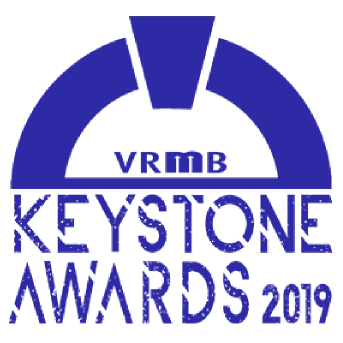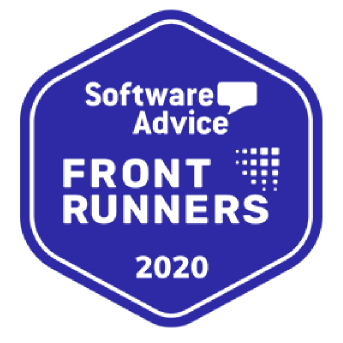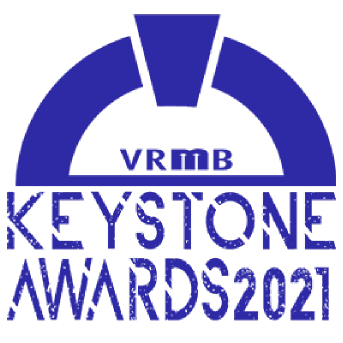From creating a business plan and finding the right location to building a website and acquiring your first clients, there are many steps involved in starting a property management business.
While it can be a lucrative way to become your own boss, it’s not without its fair share of challenges. Who better to share their journey, challenges, and lessons learned than seasoned professionals who have been in your shoes?
We spoke with Wil Slickers, Co-Founder & CHO of Recreation Rentals, Jennifer Spinelli, Founder and CEO of Niche Home Buyer, and Mia Sophia Melle, Founder of Modern Real Estate Shop, to get their best tips and secrets for starting a property management business from scratch. By the end of this article, you’ll have a 15-step plan to get your business up and running in no time.
15 Steps to start a property management company
Getting started in the property management business takes a lot of work, but it can be boiled down to 15 essential steps. Here’s what you need to do to get your business off the ground:
- Create a business plan
- Research your market
- Choose a business name and legal entity
- Acquire the necessary licenses and certifications
- Make sure your business is legally protected
- Get business insurance
- Identify the best fee structure and set prices
- Set up your property accounting and financial projections
- Design well-planned agreements and contracts
- Create and set up your business website
- Invest in marketing
- Hire passionate people
- Invest in property management software
- Network outside of your industry
- Keep an open mind
Let’s look into each of these steps in detail.
1. Create a business plan
A solid property management business plan is a blueprint for your company’s structure, operation, and long-term goals. Consider answering these questions as you develop your business plan:
- Statement of purpose: Why do you want to start a property management business? What makes you unique?
- Long-term and short-term goals: What are your goals for the next five, 10, or 20 years? How will you achieve these goals?
- Market analysis: Who is your target market? What are their needs and wants? How will you achieve them?
- Financial projections: How much money do you need to get started? How will you generate revenue? What are your estimated expenses?
2. Research your market

Seasonality, occupancy rates, and average rental prices vary from one market to the next. Before starting your business, you must have a firm understanding of the market you plan to enter. There are many online sources, like Google Trends, that can help identify market trends. You should also speak with other property managers to understand what to expect.
Here are some questions to consider as you research your market:
- The local market in your area: Which type of property is most in demand (residential or commercial property)? What should renters pay for these properties on average?
- Your competition: Who are your direct and indirect competitors? What services do they offer? What sets you apart from them?
- Economic conditions: How is the local economy performing? What new businesses are moving into the area? What effect will this have on the rental market?
- Target demographic: Who is your target market? What are their needs and wants? How large is the target market?
Lean into technology when researching your market. Paid tools like Key Data Dashboard aggregate information from multiple sources and display it on a neat dashboard. You’ll be able to clearly estimate average daily rates, occupancy, and seasonal trends.
3. Choose a business name and legal entity
“When choosing the legal form of your business, you should consider how easy it is to set up and operate, as well as the level of liability protection it offers,” says Jennifer Spinelli, founder and CEO of Niche Home Buyer.
Here are the most common business structures for property management businesses:
A sole proprietorship is the simplest and most common business structure. It’s easy to set up and requires minimal paperwork. The biggest downside is that you, as the owner, are personally liable for the debts and liabilities of the business.
C-Corp (C corporation) is taxed as a separate business entity. Stockholders will own your property management business, and you will be paid as an employee. It protects your assets from debts and liabilities. Your business will also have tax-free advantages like insurance and retirement plan deductions. However, C-Corp can lead to double taxation as your, and your shareholder’s incomes are taxable.
S-Corp (S corporation) is similar to C-Corp and excludes the risk of double taxation. The incomes are taxed only once, i.e., at a personal level. S-corps are suitable for smaller businesses with a limited number of shareholders.
LLC (Limited Liability Corporation) protects the liability of your personal assets and offers special tax provisions. The business tax is not levied on the entity but the members themselves. So, it’s pretty simple to file taxes for an LLC.
4. Acquire the necessary certifications and licensing requirements
“Most states require real estate property managers to have a real estate broker’s license,” adds Jennifer. “ In some states, you may get by with a property management permit, which is typically less expensive and requires less training than a broker’s license.”
Here are some of the most common licenses you should acquire:
- Real estate broker’s License
- Property Manager’s License
- Leasing Agent License
- Real Estate Salesperson License
Many renowned institutions also offer property management certification, such as
- IREM (Institute of Real Estate Management)
- NAR (National Association of Realtors)
- NARPM (National Association of Residential Property Managers)
Although these are not mandatory, they can help you stand out from the competition and build credibility with potential clients.
5. Make sure your business is legally protected
Property managers must be not only aware of state laws but also federal laws. Jennifer says, “There are several federal, state, and local laws that apply to real estate property managers. The most important ones are the Fair Housing Act, which prohibits discrimination in housing, and the Americans with Disabilities Act, which requires accommodations for disabled tenants.”
Federal laws cover aspects like:
- Screening tenants and background checks
- Collecting rent and security deposits
- Issuing eviction fees and notices
- Unit inspections
- Terminating leases
Failure to comply with any of these laws could result in costly fees and penalties. So, you must be up-to-date with the latest laws and regulations.
6. Get business insurance
Property management insurance protects you from any claims made by clients or tenants, no matter how baseless they might be. The insurance also covers all the legal and court fees of any lawsuit.
Some of the most common types of insurance for property management businesses are:
- General liability insurance protects the owner from claims related to bodily injury or personal harm, property damage, advertising injury, reputational harm, and copyright infringement.
- Errors and omissions insurance or professional liability insurance protects property owners from contract errors, negligence, and inaccurate advice.
- Workers’ compensation insurance covers death expenses, lost wages for employees who are injured while on the job, and vocational rehabilitation. If you’re the sole proprietor of your business, this insurance is not required.
And if you don’t know where to get started for per-reservation insurance, Hostfully integrates with Insurance partners like Superhog, InsuraGuest, and Safely. These automated insurance providers cover damages and liability on a per-reservation basis. Note that you’ll still need the other forms of insurance. Keeping your guests safe while protecting your investments has never been easier.
7. Identify the best pricing structure and set fees
Pricing your property management services can be tricky. “You’ll need to charge enough to cover your costs, including your time, overhead, and any fees you pay to third-party vendors,” adds Jennifer. But you don’t want to price yourself out of the market.
In long-term property management, says Mia Sophia Melle, Founder of Modern Real Estate Shop, “Typical management fees run anywhere from 5-10% of the gross rental amount.“
Dynamic pricing is a popular strategy among property managers. Essentially you let powerful algorithms determine the optimal pricing for you. The algorithms are based on pricing data pulled in real time from Airbnb, Vrbo, and other short-term rental sources. “We use a tool called Wheelhouse dynamic pricing. We use that as a baseline,” says Wil Slickers, Co-Founder & CHO of Recreation Rentals.
“And then from there, depending on seasonality, and owner requests, if the dynamic pricing tool says to go to 400, we know we can go to 500 or 600 based on the market and what we’ve seen in the history.”
Optimized earnings and increased occupancy are two critical benefits of dynamic pricing for vacation rental property managers.
Tools like Wheelhouse, DPGO, PriceLabs, and Beyond Pricing can help you get started with dynamic pricing. An all-in-one vacation rental management software like Hostfully directly integrates with all of these dynamic pricing tools, so you save time by not having to constantly adjust your rates, and increase your earnings.
8. Set up your property accounting and financial projections
Keeping an eye on your finances from the start is critical. Identifying red flags quickly can save you a lot of headaches (and money) down the road.
Forecasting your revenues from estimated growth year-on-year and plotting your costs will give you a pretty good idea of where your business is headed. Make sure to track all one-time and recurring expenses related to your business, including:
- Staff costs like salaries for your permanent employees and contractual employees and vendor payments
- Advertising and marketing expenses like Google Ads
- Software tools to manage your business
- Overheads like electricity, and other utilities for your office space or storage unit
- Professional fees like legal and accounting services
If you don’t know how to get started, accounting software like Quickbooks and Ximplifi can help automate reporting, tax filing, and invoicing.
The best property management apps like Hostfully integrate with this accounting software so you can automatically reconcile your transactions and save time on bookkeeping. From streamlined booking processes to quick payments, detailed reporting, and integrations with all the top property accounting software, Hostfully makes it easy for you to get paid and stay on top of your finances.
9. Design well-planned agreements and contracts
Defining the terms of your lease agreement and contracts with property owners, guests, and employees is essential to protect yourself (and them) in case anything goes wrong.
For property owners, you’ll want to define:
- The terms of your management agreement, including any lease renewal fees or commissions
- What’s included in your services, such as cleaning, maintenance, or marketing
- The conditions under which you’ll end the agreement
For guests, you’ll want to include:
- Rules and regulations around the use of the property
- Cancellation and refund policies
- Damage claims procedures
- Any other policies that will help manage expectations
For employees, you’ll want to include:
- Their job description and responsibilities
- How often they’ll be paid, and their salary or hourly rate
- The conditions under which you can end their employment
Well-written contracts will help prevent misunderstandings and legal disputes down the road.
10. Create and set up your business website
Your property management website is the first touchpoint between you and your potential guests. It’s your opportunity to make a great first impression and show them what you’re all about.
Here are a few things your website should include:
- Your business name, logo, and contact information
- A clear description of your services
- High-quality photos and videos of your properties
- A clear call-to-action (like “Book Now” or “Contact Us”)
Your website should be mobile-friendly and easy to navigate. If you’re not a web designer, website builders like Squarespace, Wix, and WordPress can help you get started with ready-to-use templates. With a direct booking website, you save on commissions and have more control over your calendar and pricing.

Hostfully’s direct booking site feature lets you add a booking widget that fully integrates with your website. So when a guest completes a booking on your website, their reservation is automatically created in your system, and you’ll never have to worry about double bookings. Easy checkouts, custom branding, and credit card and payments are some powerful features of this property management platform.
11. Invest in advertising and marketing strategy
Generating awareness for your brand and properties is essential to getting guests through the door. There are several marketing channels you can explore, including:
- Content marketing: Producing blog articles, ebooks, guides, or other content that’s relevant to your target market
- Social media marketing: Creating engaging social media posts and ads
- Email marketing: Sending newsletters or promotional emails to your mailing list
- SEO (Search engine optimization): Optimizing your website and content for Google search
- GMB (Google My Business) Listings: Creating free business listings on Google
- PPC (Pay-per-click) advertising: Buying ads on Google, Facebook, LinkedIn or other platforms
- Referral programs: incentivizing guests to refer their friends or family
The marketing channels you choose should reflect your target market, budget, and goals. A mix of organic and paid marketing is usually a good idea to reach the widest audience possible.
It’s also essential to list your properties on major listing sites like Airbnb, Vrbo, Booking.com, HomeToGo, and TripAdvisor. These platforms will help you reach a wider audience and generate more bookings. Hostfully integrates with 14+ OTAs and is a “preferred channel partner” for Airbnb, Vrbo, and Booking.com.
12. Hire passionate people
As you scale, you’ll need to hire more property managers, cleaners, maintenance workers, and other employees to help you run things smoothly. However, since your business model is based on volume, which you may not have at first, it can be hard to hire quality people early on.
Jennifer adds, “A Broker is only receiving a small percentage of the rent collection, say $100 per month per property. You may not be able to afford an employee until you reach a certain number of properties to cover yourself, overhead, and a worker’s wages. A typical number of properties needed before a Broker can afford an employee is 100 units.”
But who you hire is just as important as when you hire them. “The first thing we hire for is housekeeping no matter what, we don’t want to be cleaning the units ourselves. And then secondary is usually maintenance,” says Wil.
When asked about outsourcing, Wil and Jennifer both say they prefer in-house staff. “Cleaning companies are ten times more expensive, and the cleaning fee we’ve charged for that property won’t suffice for the market,” says Wil, “So we ended up hiring someone ourself, usually who’s local.”
13. Invest in property management software
The right property management system can help drive efficiency, revenue, and growth for your business. It can automate many of the tedious tasks associated with running a property management company, from marketing and advertising to bookings and payments.
There are many software platforms to choose from like iGMS, Lodgify, Hostfully, and Guesty. The key is to find a system that integrates with your website and other software you’re using, like your accounting software.
Hostfully’s all-in-one platform includes:
- Booking and pipeline management that offers clarity into your leads, upcoming reservations, and bookings.
- Channel manager that allows you to list your properties on 14+ listing sites with ease including Airbnb, Vrbo, Booking.com, HomeToGo, and TripAdvisor.
- Integrations with 40+ business applications like accounting, dynamic pricing, cleaning management, and marketing.
- White-labeled direct booking website lets you custom-brand your site and accept bookings directly without relying on third-party platforms.
- Hostfully Guidebooks simplify sharing pre- and in-stay information, making recommendations, and upselling.
Wil adds “I think guidebooks are a tool that a lot of people underestimate.” Guidebooks can also be used as a way to protect your properties. For example, you have clear instructions on how to use certain appliances, or what guests should do with the trash. It strikes a balance between giving your guests the information they need without being too long or boring.
14. Network and grow your business
You never know when you might meet a potential client, vendor, or partner. Attend industry events, join relevant Facebook communities, or connect with other property managers in your area. However, consider being strategic about the events you attend and who you connect with.
Be introduced to build credibility, rather than simply handing out business cards. Become a member of your local Chamber of Commerce or Board of Realtors, where you can be involved with other business leaders in your town or city. Learn all you can from other property management professionals and network across industries. Making as many connections as possible when you first start will pay off sooner than later—casting a wide net catches more real estate investors.
15. Keep an open mind
The best property managers are always learning and evolving. “As your business grows, you’ll need to be mindful of manpower needs, as well as increasing costs and liability”, says Jennifer, “You should also have a plan in place for how to scale up your operations without sacrificing quality or service.”
Wil shares his experience of working with remote teams managing properties in different time zones. “When you’re in Washington and you have a property in Florida, those time differences make it complicated to manage. That’s where remote teams really strike a balance. When you have a good team in place, it really helps with the delegation of tasks and having someone you can trust to get the job done.”
By keeping an open mind toward new technologies, processes, and systems, you can adapt to and overcome any business challenges that come your way.
Take the plunge, into your own property management company
Setting up your own property management company is exciting, challenging, and rewarding. Get started by identifying your niche and target market, building a great website and online presence, creating efficient systems and processes, and networking with other professionals.
Stay ahead of the curve by automating daily tasks with property management software like Hostfully. With this end-to-end PMS and its robust integrations, you can focus on growing your business without having to do it all by yourself.
Frequently asked questions about starting a property management company
What is the first thing you should do when starting a property management business?
The first thing you should do when starting a property management business is to create a business plan. This will help you map out your business goals, strategies, and how you plan on achieving them.
How do you start a management company?
You start a management company by first creating a business plan, then building your brand and marketing your services. You will need to develop a solid understanding of the property management industry and what your potential clients will need from you.
What are the steps in starting a property management business?
The steps in starting a property management business are creating a business plan, creating a brand, marketing your services, developing efficient systems and processes, networking with other professionals in the industry, and staying up-to-date on the latest trends and technologies.
What are the duties of a property management company?
The duties of a property management company include marketing the property, screening and selecting tenants, collecting rent payments, maintaining the property, and handling repairs and maintenance.










